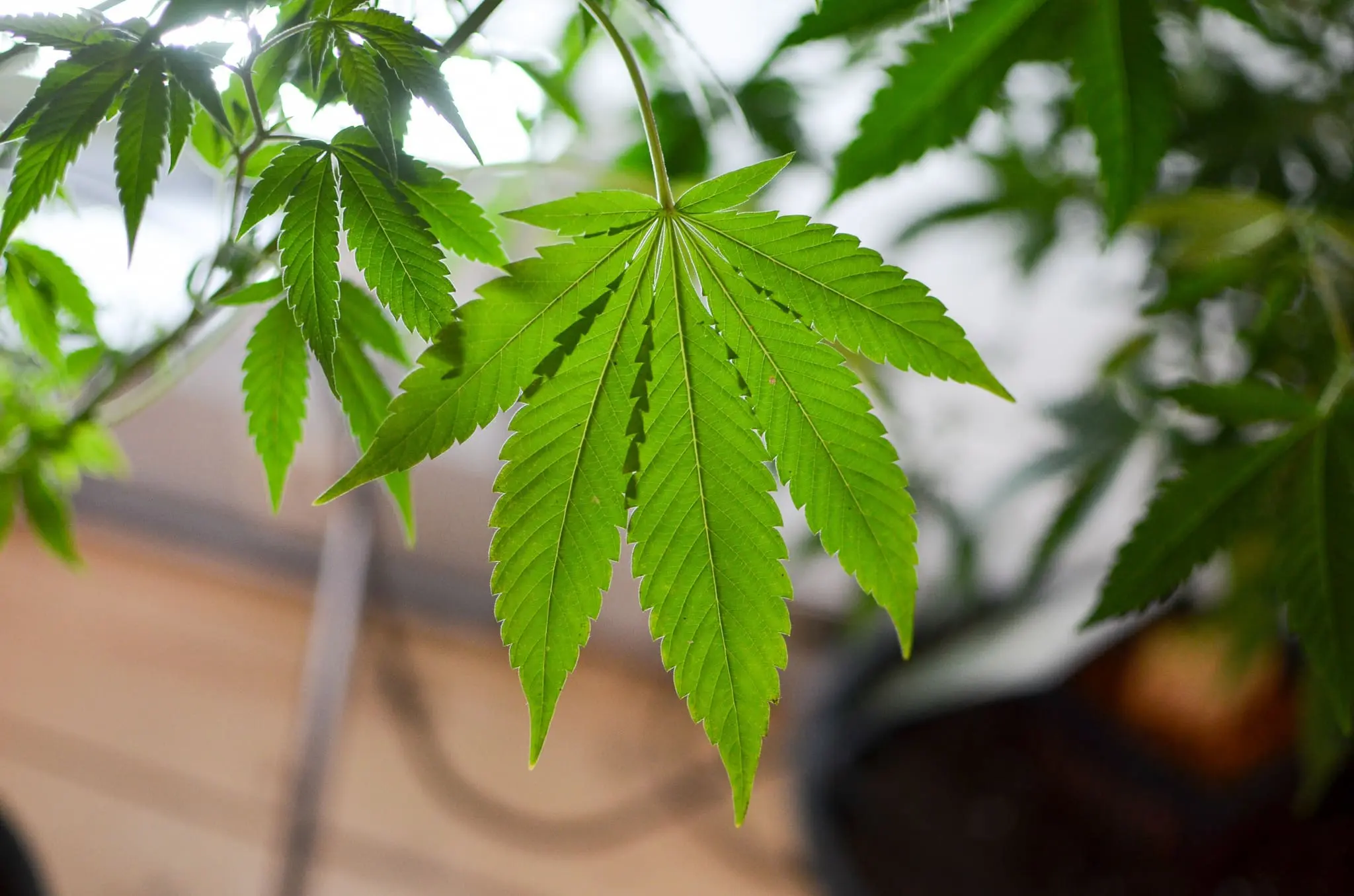Politics
Senate Rejects Attempt To Save Hemp Industry From THC Ban In Key Spending Bill

The Senate has rejected an amendment to a critical spending bill that would have removed language to ban hemp products containing THC.
After the chamber cleared the appropriations minibus package for floor consideration on Sunday, senators on Monday took up the measure from Sen. Rand Paul (R-KY) that he said would prevent the eradication of the hemp market that’s matured since the crop’s federal legalization under the 2018 Farm Bill.
The amendment was killed in a 76-24 vote on a motion to table.
“My amendment would strip the provision designed to regulate the hemp industry to death. The bill, as it now stands, overrides the regulatory frameworks of several states, cancels the collective decisions of hemp consumers and destroys the livelihoods of hemp farmers,” Paul said on the floor ahead of the vote. “And it couldn’t come at a worse time for America’s farmers. Times are tough for our farmers.”
Sen. Jeff Merkley (D-OR) spoke in support of the amendment, saying the ban “would wipe out an industry that we have spent more than a decade creating.”
Sen. Mitch McConnell (R-KY), who has championed the prohibition, said “companies have exploited a loophole” in previous legislation he sponsored to legalize industrial hemp. The revision to the law, he argued before making the motion to table Paul’s amendment, will “keep the dangerous products out of the hands of children while preserving the hemp industry for farmers.”
The broader legislation the ban is included in is set to be considered imminently. If it advances and passes in the House, that could put an end to the historically long government shutdown that enters its sixth week starting Tuesday.
Ahead of Monday’s vote, Sen. Patty Murray (D-WA), the top Democrat on the Senate Appropriations Committee, and Sen. Jeanne Shaheen (D-NH), the party’s top member on the subcommittee that handles agriculture spending, flagged the Paul amendment and notified members that they would be voting against the proposal, signaling to the caucus that they should follow suit.
“The provision in the bill looks to address the wide range of intoxicating hemp products that have showed up in gas stations, vape shops, and online stores,” they said in a one-pager. “These ‘hemp intoxicants’ now make up a huge industry, often operating without rules and regulations and raising new public health and safety concerns.”
Paul’s amendment would have simply removed language inserted into the minibus, which was released over the weekend, that would severely restrict the types of hemp products that could be legally sold.
The vote to pass the legislation comes amid a raucous debate that’s seen competing interests—from lawmakers to consumer brands to alcohol and cannabis companies—seek to influence the final product.
Notably, a White House spokesperson said on Monday that President Donald Trump “supports” the proposed ban on hemp products containing THC in the Senate spending bill.
While Trump endorsed cannabis reform on the campaign trail—including a pending proposal to reschedule marijuana–he’s also voiced concerns about non-medical cannabis use. During his first term, he signed the 2018 Farm Bill that federally legalized hemp and its derivatives, but he’s been less vocal about issue related to the cannabis cousin.
Meanwhile, a coalition of alcohol companies sent a letter to senators on Monday imploring them to support the current hemp ban language. The alcohol companies separately pushed Congress to hold the line on the hemp provisions in a letter to leadership last week.
Under current law, cannabis products are considered legal hemp if they contain less than 0.3 percent delta-9 THC on a dry weight basis.
The new legislation specifies that, within one year of enactment, the weight would apply to total THC—including delta-8 and other isomers. It would also include “any other cannabinoids that have similar effects (or are marketed to have similar effects) on humans or animals as a tetrahydrocannabinol (as determined by the Secretary of Health and Human Services).”
The new definition of legal hemp would additionally ban “any intermediate hemp-derived cannabinoid products which are marketed or sold as a final product or directly to an end consumer for personal or household use” as well as products containing cannabinoids that are synthesized or manufactured outside of the cannabis plant or not capable of being naturally produced by it.
Legal hemp products would be limited to a total of 0.4 milligrams per container of total THC or any other cannabinoids with similar effects.
Within 90 days of the bill’s enactment, the Food and Drug Administration (FDA) and other agencies would need to publish list of “all cannabinoids known to FDA to be capable of being naturally produced by a Cannabis sativa L. plant, as reflected in peer reviewed literature,” “all tetrahydrocannabinol class cannabinoids known to the agency to be naturally occurring in the plant” and “all other know cannabinoids with similar effects to, or marketed to have similar effects to, tetrahyrocannabinol class cannabinoids.”
The language slightly differs from provisions included in legislation that had previously advanced out of the House and Senate Appropriations panels, which would have banned products containing any “quantifiable” amount of THC, to be determined by the HHS secretary and secretary of agriculture.
Separately, the newly released appropriations legislation excludes language that had been passed by either chamber earlier this year to let VA doctors recommend medical cannabis to their military veteran patients in states where it is legal.
The appropriations bill’s advancement comes amid a stepped-up push from parties on both sides of the hemp debate to influence Congress as they negotiated the deal.
Last week more than 50 alcohol distributors have joined together to oppose efforts in Congress to ban hemp products with THC, stressing to lawmakers that as demand for alcohol has “shifted downward,” the cannabis market has helped sustain their industry.
Interestingly, there’s particular division among alcohol stakeholders, many of which reported lobbying on hemp issues this year. There appears to be disagreement over the path forward as it concerns wholesalers who distribute alcohol and hemp products and major brands marketing their own beverages.
A leading consumer trade association that counts among its members corporations such as Coca-Cola, General Mills, Kraft Heinz and Nestlé is also putting pressure on Congress to ban hemp products with THC.
Meanwhile, a bipartisan group of 39 state and territory attorneys general recently called on Congress to clarify the federal definition of hemp and impose regulations preventing the sale of intoxicating cannabinoid products.
Minnesota Attorney General Keith Ellison (D), who helped lead that letter to congressional leaders last month, defended his decision amid criticism from industry stakeholders and advocates who questioned why top prosecutors from states that have robust regulated hemp markets such as Minnesota would encourage the federal recriminalization of such products.
Two GOP lawmakers—McConnell and Rep. Andy Harris (R-MD)—have pushed aggressively for an outright ban on hemp products containing THC. But others such as Paul have insisted that such a policy change would devastate the industry. And Paul previously cautioned that he’d go so far as to hold up large-scale spending legislation if a full ban was kept intact.
The senator also pushed back against the recent letter from the state and territory attorneys general who implored Republican leaders to fully prevent the marketing of intoxicating hemp products.
—
Marijuana Moment is tracking hundreds of cannabis, psychedelics and drug policy bills in state legislatures and Congress this year. Patreon supporters pledging at least $25/month get access to our interactive maps, charts and hearing calendar so they don’t miss any developments.
![]()
Learn more about our marijuana bill tracker and become a supporter on Patreon to get access.
—
As far as legislative options go, Paul did put forward legislative language recently to require a study and report on state regulatory models for hemp that could inform future revisions to the federal law—rather than prohibit sales altogether, as McConnell would have it.
In August, McConnell–who ushered in the federal legalization of hemp under the 2018 Farm Bill–took to the Senate floor to criticize those who opposed the ban, including Paul.
Meanwhile, Paul recently filed a standalone bill that would go in the opposite direction of the hemp ban, proposing to triple the concentration of THC that the crop could legally contain, while addressing multiple other concerns the industry has expressed about federal regulations.
The senator introduced the legislation, titled the Hemp Economic Mobilization Plan (HEMP) Act, in June. It mirrors versions he’s sponsored over the last several sessions.
Photo courtesy of Philip Steffan.



